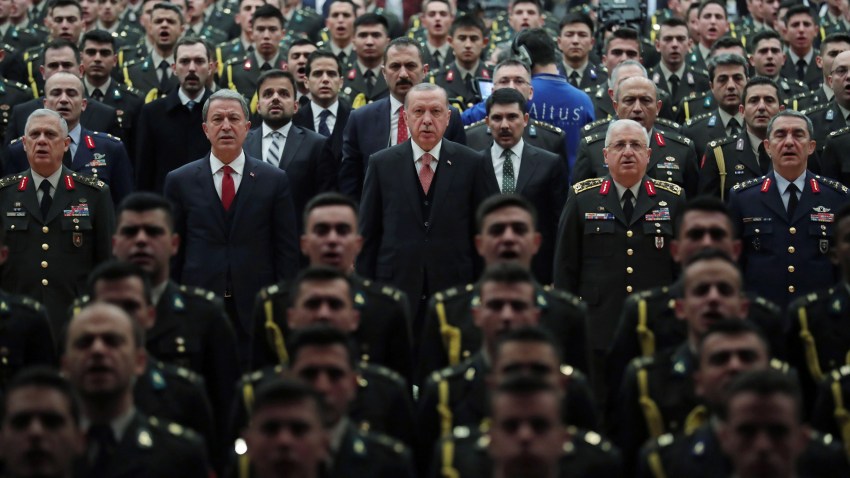During the final stages of this month’s general elections in Turkey, many observers looked back to transformative moments from the country’s history when trying to explain its contemporary political conflicts. When victory for the opposition alliance’s presidential candidate, the CHP Party’s Kemal Kilicdaroglu, still seemed possible, analysts drew comparisons to the end of the Ottoman Empire and declaration of the Turkish Republic by Kemal Ataturk, whose centennial anniversary will be celebrated this October. After the results of the first-round presidential election on May 14 signaled that President Recep Tayyip Erdogan was on track to win reelection—which he did in the second round held this past weekend—some scholars wondered whether it presaged the end of the social order founded by Ataturk, pointing to the conquest of Istanbul by the Ottomans in 1453 as a parallel.
Yet in a century laden with triumph and tragedy for Turkey, the historical event most crucial to reinforcing the social polarization tearing at Turkish society today was the military coup led by Gen. Kenan Evren in September 1980, which overthrew a democratically elected government in a quest to save the system Ataturk had built. The move culminated 20 years of political chaos unleashed by a previous coup in 1961 by officers who claimed they were protecting the secular foundations of Ataturk’s system against the religious populism of then Prime Minister Adnan Menderes.
Yet rather than bringing stability, the period after Menderes’ execution witnessed growing political mobilization and violence between far-left and far-right movements that flourished in a society experiencing the social shocks of rapid industrialization and urbanization. After the failure of a lighter military intervention in 1971 and attempts by the CHP and various center-right coalitions to stabilize the state, by 1980 the military’s senior leadership concluded it could only restore order if it crushed all sources of political disruption.

